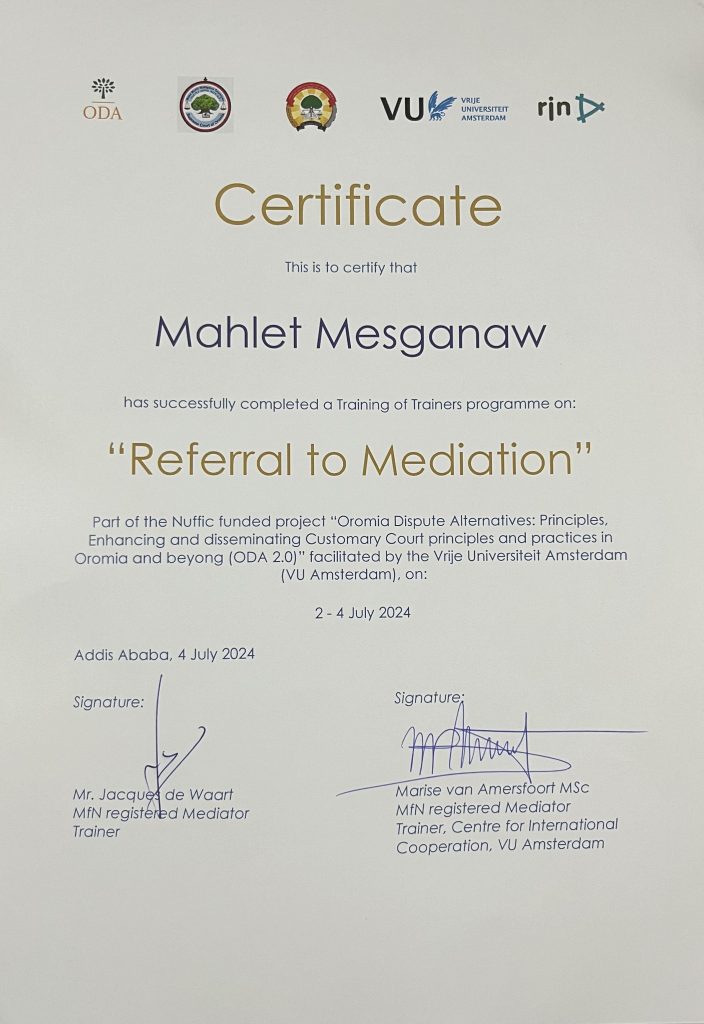Foreign Experts and Consulting Firms:Certificate of Competency
By Mahlet Mesganaw, Partner at DMLF
The Ethiopian Environmental Protection Authority, with its power generated from Article 20 of the Environmental Impact Assessment Proclamation No 299/2002, issued a Directive on Issuance of Competency for Consulting Services in Environmental and Social Impact Assessment Number 1005/2024 (hereafter the Directive). The Directive is done in June 2024 and shall be effective from the date of registration in the website of the FDRE Ministry of Justice. The Directive repealed the previous Directive on Environmental and Social Impact Assessment Competency Certification Directive Number 03/2018.
The aim of the Directive is to indicate standardized criteria that enables consistent and accountable competency issuance system by developing competency criteria to recognize and regulate experts and firms engaging in environmental and social impact assessment, strategic environmental assessment and environmental audit consulting services. Hence professionals and consulting firms that were registered and given a certificate of competence before the issuance of this Directive shall register in accordance with this Directive within 6 months of approval of the Directive.
Foreign experts and foreign consulting firms are no different from their Ethiopian counterparts. Any foreign expert or foreign consultancy firm can engage in environmental and social impact assessment, strategic environmental assessment and environmental audit consulting services.
The foreign expert or foreign consultancy firm should produce the necessary licenses and permits to engage in consultancy services from relevant government authorities. When it is a foreign consulting firm, the latter can engage in consultancy services only when the foreign firm creates an alliance/contract agreement with a domestic consulting firm. The foreign consulting firm should first notify the Authority before entering into a contract to work in alliance with consulting firms in the country.
The requirement of alliance with a domestic consultancy firm may create legal issues. In the Investment Regulation Number 474/2020, foreign firms are required to partner with a domestic investor in sectors of freight forwarding and shipping agency, domestic air transport, cross country public transport, urban mass transport, advertisement and promotion, audiovisual, motion picture, video recording, production and distribution and accounting and auditing services. Environmental and social impact assessment, strategic environmental assessment and environmental audit consulting services are outside of the partnership sector the Regulation envisages. Environmental and social impact assessment services are services that are neither reserved for government nor for domestic investors. Hence the service is open for foreigners to engage in as per Article 6 of the Investment Regulation Number 474/2020. A foreign consulting firm, duly registered and invested as per the investment laws of the country, having obtained relevant licenses, may challenge the need for the requirement of alliance with domestic consulting firms.
In principle, ratification of Directives takes a few crucial steps before coming to force under Federal Administrative Procedure Proclamation Number 1183/2020. Prior to ratification of a Directive, the Authority should consult with the public and send the draft to the Ministry of Justice for its opinion. The main reason behind this is to check whether or not a certain directive provision contradicts with higher laws or not.
Therefore, the new Directive on Issuance of Competency for Consulting Services in Environmental and Social Impact Assessment No. 1005/2024 has incorporated standardized criterias that assist in issuance of certificate of competence in environmental and social impact assessment, strategic environmental assessment and environmental audit consulting services. Foreign firms or foreign professionals can also obtain such competency certification having fulfilled the necessary registration licenses and permits and when it comes to foreign consulting firms by forging an alliance with domestic consulting firms.
For any related inquiries, you may contact us at info@dmethiolawyers.com




